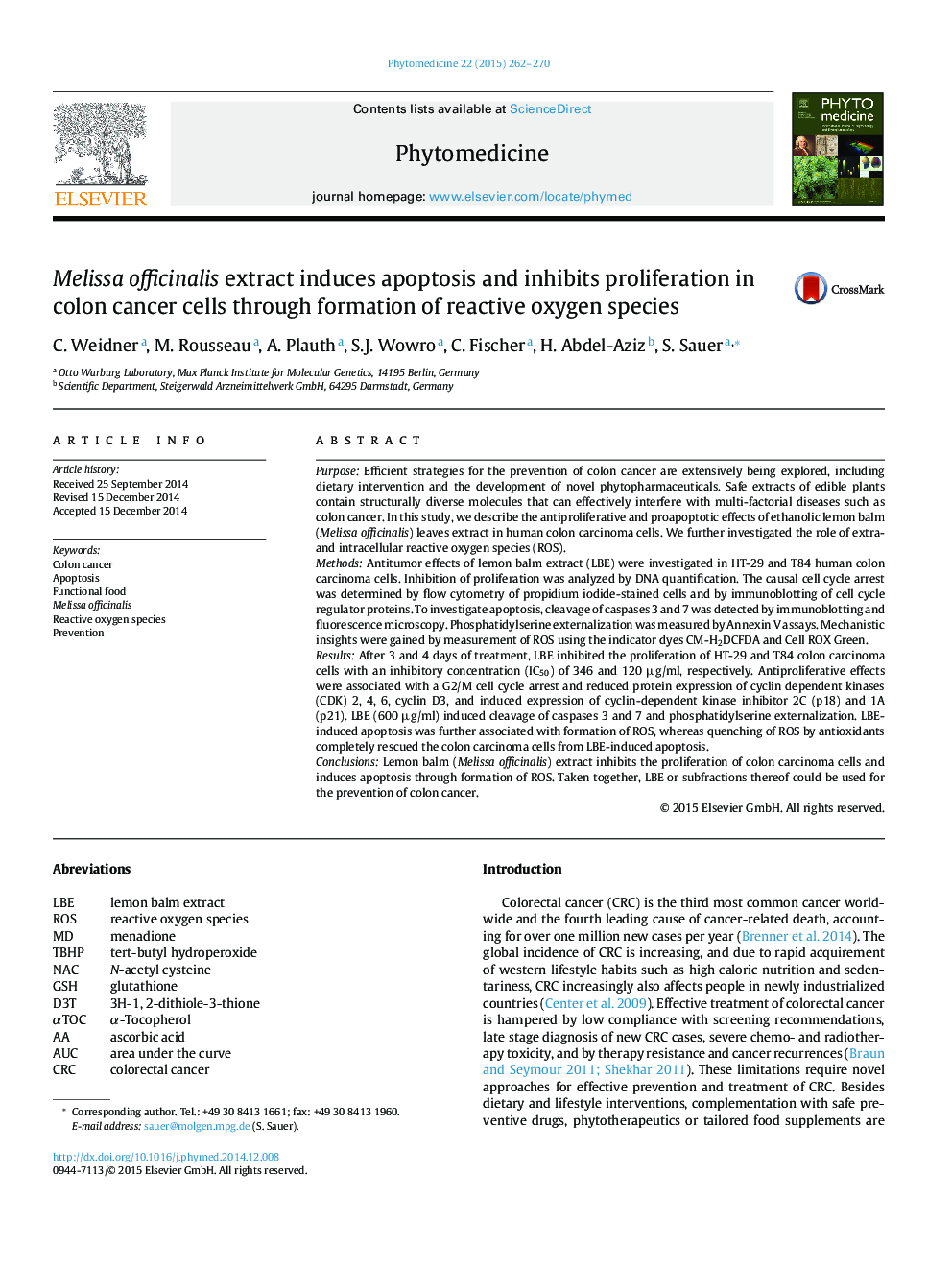| کد مقاله | کد نشریه | سال انتشار | مقاله انگلیسی | نسخه تمام متن |
|---|---|---|---|---|
| 2496575 | 1116143 | 2015 | 9 صفحه PDF | دانلود رایگان |
PurposeEfficient strategies for the prevention of colon cancer are extensively being explored, including dietary intervention and the development of novel phytopharmaceuticals. Safe extracts of edible plants contain structurally diverse molecules that can effectively interfere with multi-factorial diseases such as colon cancer. In this study, we describe the antiproliferative and proapoptotic effects of ethanolic lemon balm (Melissa officinalis) leaves extract in human colon carcinoma cells. We further investigated the role of extra- and intracellular reactive oxygen species (ROS).MethodsAntitumor effects of lemon balm extract (LBE) were investigated in HT-29 and T84 human colon carcinoma cells. Inhibition of proliferation was analyzed by DNA quantification. The causal cell cycle arrest was determined by flow cytometry of propidium iodide-stained cells and by immunoblotting of cell cycle regulator proteins. To investigate apoptosis, cleavage of caspases 3 and 7 was detected by immunoblotting and fluorescence microscopy. Phosphatidylserine externalization was measured by Annexin V assays. Mechanistic insights were gained by measurement of ROS using the indicator dyes CM-H2DCFDA and Cell ROX Green.ResultsAfter 3 and 4 days of treatment, LBE inhibited the proliferation of HT-29 and T84 colon carcinoma cells with an inhibitory concentration (IC50) of 346 and 120 µg/ml, respectively. Antiproliferative effects were associated with a G2/M cell cycle arrest and reduced protein expression of cyclin dependent kinases (CDK) 2, 4, 6, cyclin D3, and induced expression of cyclin-dependent kinase inhibitor 2C (p18) and 1A (p21). LBE (600 µg/ml) induced cleavage of caspases 3 and 7 and phosphatidylserine externalization. LBE-induced apoptosis was further associated with formation of ROS, whereas quenching of ROS by antioxidants completely rescued the colon carcinoma cells from LBE-induced apoptosis.ConclusionsLemon balm (Melissa officinalis) extract inhibits the proliferation of colon carcinoma cells and induces apoptosis through formation of ROS. Taken together, LBE or subfractions thereof could be used for the prevention of colon cancer.
Figure optionsDownload high-quality image (144 K)Download as PowerPoint slide
Journal: Phytomedicine - Volume 22, Issue 2, 15 February 2015, Pages 262–270
